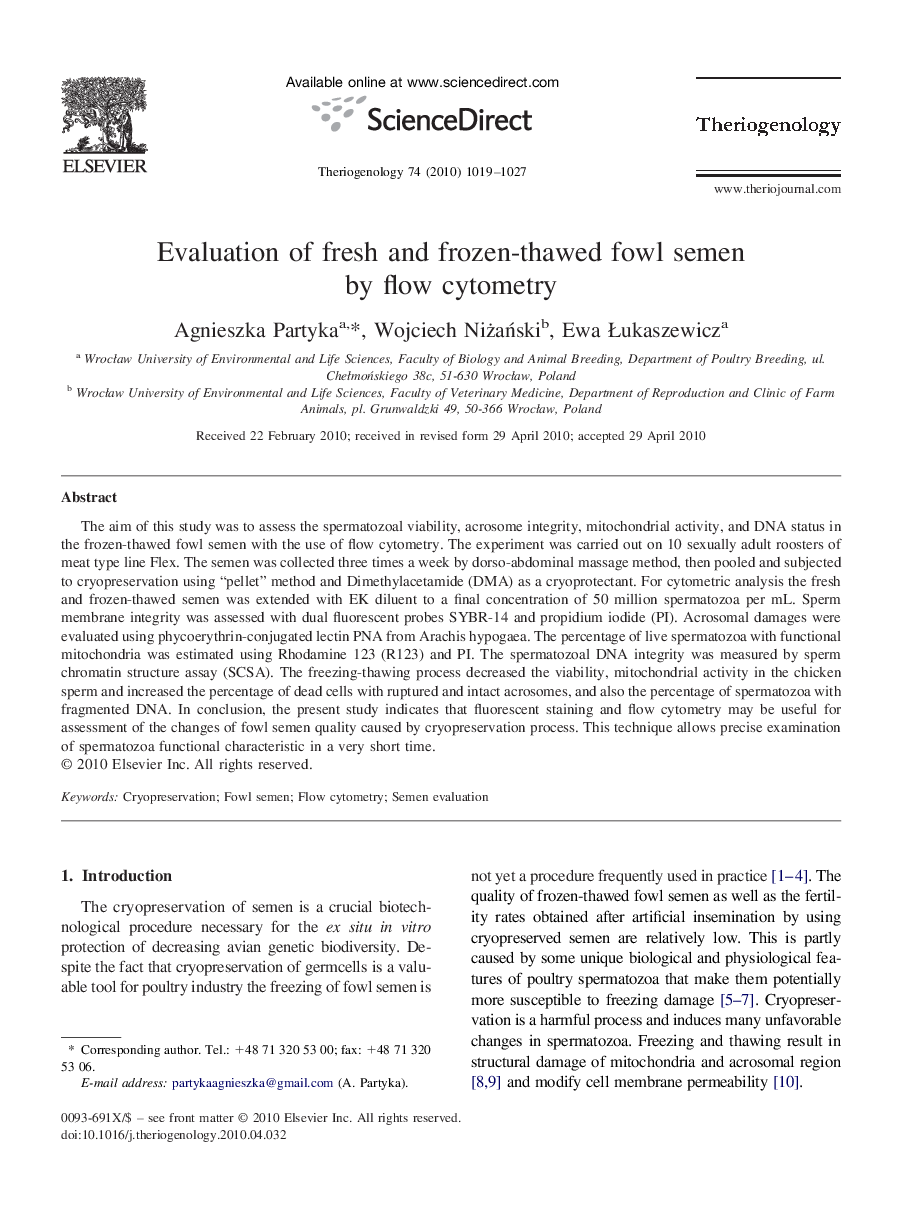| Article ID | Journal | Published Year | Pages | File Type |
|---|---|---|---|---|
| 2096425 | Theriogenology | 2010 | 9 Pages |
The aim of this study was to assess the spermatozoal viability, acrosome integrity, mitochondrial activity, and DNA status in the frozen-thawed fowl semen with the use of flow cytometry. The experiment was carried out on 10 sexually adult roosters of meat type line Flex. The semen was collected three times a week by dorso-abdominal massage method, then pooled and subjected to cryopreservation using “pellet” method and Dimethylacetamide (DMA) as a cryoprotectant. For cytometric analysis the fresh and frozen-thawed semen was extended with EK diluent to a final concentration of 50 million spermatozoa per mL. Sperm membrane integrity was assessed with dual fluorescent probes SYBR-14 and propidium iodide (PI). Acrosomal damages were evaluated using phycoerythrin-conjugated lectin PNA from Arachis hypogaea. The percentage of live spermatozoa with functional mitochondria was estimated using Rhodamine 123 (R123) and PI. The spermatozoal DNA integrity was measured by sperm chromatin structure assay (SCSA). The freezing-thawing process decreased the viability, mitochondrial activity in the chicken sperm and increased the percentage of dead cells with ruptured and intact acrosomes, and also the percentage of spermatozoa with fragmented DNA. In conclusion, the present study indicates that fluorescent staining and flow cytometry may be useful for assessment of the changes of fowl semen quality caused by cryopreservation process. This technique allows precise examination of spermatozoa functional characteristic in a very short time.
